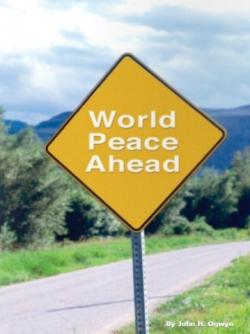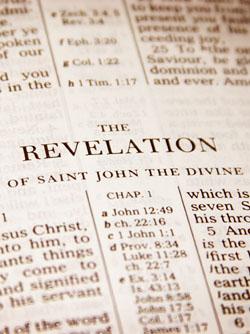Europe and the Vatican Agenda
The Roman Catholic Church has a long history of intimate involvement in Europe's political and religious affairs.
Remarkable developments in Europe may soon culminate in one of the most pivotal events in the history of the continent. Bible prophecy clearly indicates that just before the return of Jesus Christ, a political-economic-military power identified with a revival of the historic Roman Empire will emerge on the continent of Europe (see Revelation 17–18). Scripture shows that this beast-like creature will be composed of ten nations or groups of nations, and will be ridden by a woman—in prophetic terms, this means a religious organization or a church. More and more, efforts to unite Europe fit the description of this biblical end-time beast. The Vatican and its long-term agenda also bear an unmistakable resemblance to the woman who rides the beast.
The Roman Catholic Church has a long history of intimate involvement in Europe's political and religious affairs. In the 4th century ad, the Emperor Constantine agreed with Sylvester, bishop of Rome, to link the influence of the Church to the power of Imperial Rome. Centuries later, a pope crowned Charlemagne the first "Holy Roman Emperor." Popes continued to bestow the Imperial crown when the Empire was revived under Otto the Great (king of the Germans), and reached its zenith under Charles V of the Hapsburg dynasty. The papacy also signed concordats with Mussolini and Hitler. This was part of a well-understood agenda. Over the centuries, the Church legitimized claimants to the Imperial title, thus gaining opportunities to expand its influence and control over the Empire.
This centuries-long agenda did not die with the last claimant to the Imperial title. In 1945, Pope Pius XII sought to restore this mutually beneficial relationship by working to establish a new (predominantly Catholic) country formed from Austria and parts of Germany under the leadership of Dr. Otto von Hapsburg, the heir to the Austrian throne. While this dream did not materialize, the papacy recognized the possibilities in a united Europe where in many countries Roman Catholics are 80 to 90 percent of the population. Forty years ago, Pope John XXIII predicted that the new Europe would become "the greatest Catholic superstate the world has ever known" and "the greatest single human force ever seen by man." This is a key reason why the Vatican has actively promoted European unity.
Pope John XXIII urged Roman Catholics to be "in the front ranks" of the effort to unify Europe. Many of the "founding fathers" of the new Europe were devout Catholics, as are many of its leading proponents today. Even the press has described \the idea of a united Europe as essentially a Catholic concept\ (The Financial Times, May 22, 1995). However, it has been Pope John Paul II who has promoted this key Vatican agenda for a quarter of a century. He has given nearly 700 speeches concerning Europe, and repeatedly urged Europeans to "discover their roots" as they build their "common European house." Those roots go back to the alliance between the Catholic Church and the Holy Roman Empire that ruled Europe for more than a thousand years. John Paul II has warned that dark clouds hover over a continent that yields to unbridled secularism, that Europe could "lose its identity" and that its unity could "collapse within a decade" if it fails to acknowledge its Catholic Christian heritage (see The Economist, August 24, 2002).
Efforts to create a European constitution for the emerging superstate reveal the extent of the Vatican agenda. Religious groups were not invited to the European constitutional convention, because secular forces want to separate church and state, but this has not deterred the Vatican from striving to influence the outcome. In a private audience with Valery Giscard d'Estang, president of the convention, Pope John Paul II urged him not to forget the religious "cement" that has long held Europe together. John Paul II has repeatedly reminded ambassadors to the Vatican that a European constitution must recognize the role that Catholicism has played in Europe's history. When an early draft failed to mention God, religion, Christianity or the role of the church, the Vatican denounced the document as "completely unsatisfactory" (London Daily Telegraph, February 2, 2003). Subsequently, the Vatican unveiled "the Catholic Church's most ambitious plans" to make sure that the new constitution not only includes a reference to God, but also guarantees the legal status of churches and "the assurance of a formal dialogue with European institutions" (euobserver.com, April 24, 2003). It is simply not on the Vatican agenda to be left out of the New Europe.
In an attempt to add its weight to the efforts to unite Europe, the Vatican announced that "the founding fathers of Europe"—Alcide De Gasperi of Italy, Robert Schuman of France and Konrad Adenauer of Germany—as well as Charles I, the last Hapsburg Emperor of Austria-Hungary, have been launched on the path towards sainthood. The Vatican, under the guidance of Pope John Paul II, has openly supported the eastward expansion of the EU and the admission of 60 million Roman Catholics in Poland. The Vatican's efforts to heal the 1,000-year-old breach with the Eastern Orthodox Church could bring millions of "separated" brothers and sisters back into the fold of the "mother" church. These are not isolated activities, but are part of a far-reaching agenda to restore the influence of the Catholic Church in Europe and the world—reclaiming territory lost in the "Great Schism" of the 11th century, the Protestant Reformation of the 16th century and the rise of atheistic communism that engulfed much of Eastern Europe in the 20th century.
The Vatican has long recognized the important role that it alone can play in European integration. In 1975, Pope Paul VI proclaimed: "Can it not be said that it is faith… the Catholic faith that made Europe?… No other human force in Europe can render the service that is confided to us… to re-awaken Europe's Christian soul, where its unity is rooted" (The Principality and Power of Europe, Hilton, pp. 34–35). However, the Vatican is not without important allies. Dr. von Hapsburg, a member of the European Parliament and head of the Pan-Europe Movement, not only supports a strong role for the Roman Catholic Church, but has observed that "the imperial crown of Charlemagne and of the Holy Roman Empire might well have its part to play" in the ultimate configuration that emerges in Europe (ibid., p. 35). The depth of this agenda is reflected in a statement by a Catholic lay worker: "I think the European Union is a design not only of human beings but of God" (The Tablet, London, October 1999).
While the Bible reveals that God is not behind the unification of Europe, one church's determined efforts to amount and ride the beast now forming on the foundations of the ancient Roman Empire were predicted long ago in Scripture (Revelation 17:3–7; see also Daniel 2; 7; Revelation 13; 18) and are coming alive today! To learn more about these prophecies, which will culminate in the return of Jesus Christ, request our free booklet, The Beast of Revelation.
—Douglas S. Winnail






